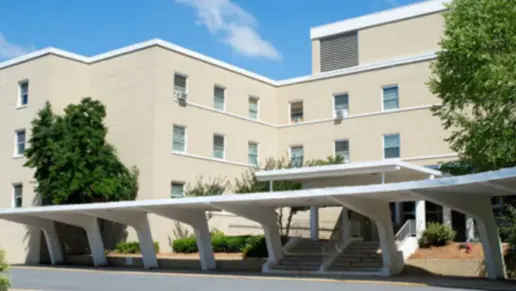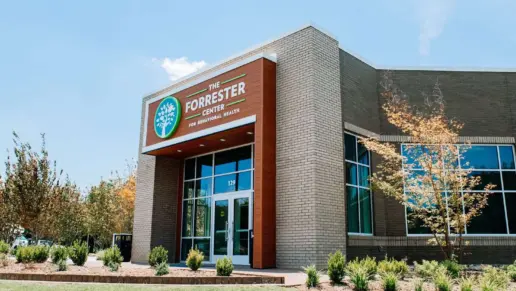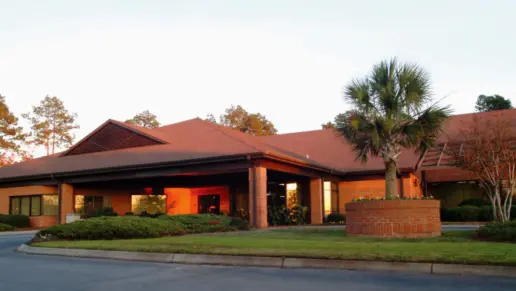The reason why I didn't like Phoenix Center is because I felt like if I was just a number, like if they just wanted to finish my treatment as soon as possible no matter what.
About Phoenix Center Lotte Beal Training Center
The Phoenix Center – Detoxification is a nonprofit alcohol and drug rehab in Greeneville, South Carolina. They take a proactive approach to preventing and treating substance abuse in adults and adolescents with detox, inpatient, outpatient, medication assisted treatment, and aftercare services. They are a clinical facility with modern amenities. Phoenix Center does not turn anyone away due to an inability to pay. When considering new clients, they prioritize pregnant women who use intravenous drugs. Services are available in English and Spanish.
The Phoenix Center operates a 10 bed medical detox unit for adults in crisis. It’s open 24/7, and is operated by nurses, physicians, and other support staff to help clients through detox. Clients attend group meetings as they stabilize to learn more about addiction and their options following successful detox.
Inpatient care is an intense form of drug rehab available to men and women who need a safe living space and close monitoring during treatment. They live onsite with other clients, where they receive medical care and have additional needs met by staff and receive six hours of treatment every day.
The care plan focuses on therapy which aims to uncover harmful triggers and replace them with healthy coping skills. Therapy occurs in individual and group settings. Clients are introduced to community support resources they can utilize once they’ve completed the program.
Outpatient programs are a step down from inpatient care, though some clients use them as a transitional step after detox. Clients visit the facility on a fixed schedule to receive treatment while living at home, attending school, and continuing employment. Outpatient care is open to adolescents ages 12-17 and adults.
Adult clients enrolled in the outpatient program qualify for medication assisted treatment. During this treatment, clients receive medication that helps curb cravings and reduce the risk of relapse. Drugs approved for medication assisted treatment include Suboxone, Subutex, and Vivitrol. Clients are supervised during dosing and throughout their program.
Phoenix Center is accredited by the Commission on Accreditation of Rehabilitation Facilities. The center accepts Medicaid and has a sliding scale for low income clients. Insurance is accepted, but please check your coverage and any applicable out of network benefits.
Rehab Score
Gallery
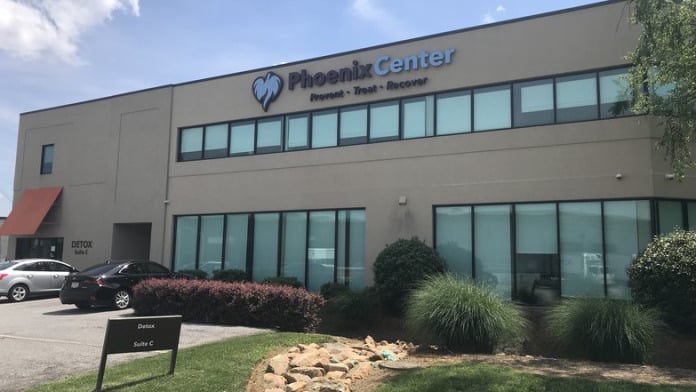
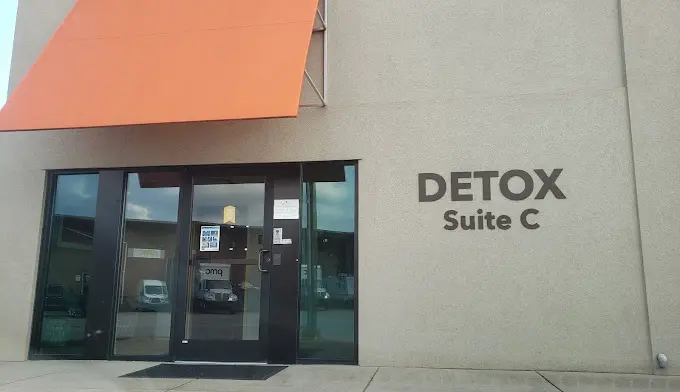
Location
Other Forms of Payment
Medicaid is a state based program that helps lower-income individuals and families pay for healthcare. Medicaid covers addiction treatment so those enrolled can use their coverage to pay for rehab. When a program accepts Medicaid the client often pays very little or nothing out of their own pocket.
Private insurance refers to any kind of healthcare coverage that isn't from the state or federal government. This includes individual and family plans offered by an employer or purchased from the Insurance Marketplace. Every plan will have different requirements and out of pocket costs so be sure to get the full details before you start treatment.
Self-pay involves paying for treatment out of your own pocket. You can use savings or credit, get a personal loan, or receive help from family and friends to fund your treatment. If you don't have insurance or your insurance plan doesn't cover a specific program, self-pay can help ensure you still get the care you need.
Financial aid can take many forms. Centers may have grants or scholarships available to clients who meet eligibility requirements. Programs that receive SAMHSA grants may have financial aid available for those who need treatment as well. Grants and scholarships can help you pai for treatment without having to repay.
Sliding scale payments are based on a client's income and family size. The goal is to make treatment affordable to everyone. By taking these factors into account, addiction recovery care providers help ensure that your treatment does not become a financial burden to you or your family, eliminating one barrier to care.
Addiction Treatments
Levels of Care
Treatments
The goal of treatment for alcoholism is abstinence. Those with poor social support, poor motivation, or psychiatric disorders tend to relapse within a few years of treatment. For these people, success is measured by longer periods of abstinence, reduced use of alcohol, better health, and improved social functioning. Recovery and Maintenance are usually based on 12 step programs and AA meetings.
Choosing a drug rehab in South Carolina helps you overcome drug dependency, learn how to manage cravings, and obtain the tools needed to prevent relapse. This is accomplished through individualized treatment that addresses a full spectrum of physical, social, and emotional needs.
Opioid rehabs specialize in supporting those recovering from opioid addiction. They treat those suffering from addiction to illegal opioids like heroin, as well as prescription drugs like oxycodone. These centers typically combine both physical as well as mental and emotional support to help stop addiction. Physical support often includes medical detox and subsequent medical support (including medication), and mental support includes in-depth therapy to address the underlying causes of addiction.
Substance rehabs focus on helping individuals recover from substance abuse, including alcohol and drug addiction (both illegal and prescription drugs). They often include the opportunity to engage in both individual as well as group therapy.
Programs


Clinical Services
Research clearly demonstrates that recovery is far more successful and sustainable when loved ones like family members participate in rehab and substance abuse treatment. Genetic factors may be at play when it comes to drug and alcohol addiction, as well as mental health issues. Family dynamics often play a critical role in addiction triggers, and if properly educated, family members can be a strong source of support when it comes to rehabilitation.
Group therapy is any therapeutic work that happens in a group (not one-on-one). There are a number of different group therapy modalities, including support groups, experiential therapy, psycho-education, and more. Group therapy involves treatment as well as processing interaction between group members.
In individual therapy, a patient meets one-on-one with a trained psychologist or counselor. Therapy is a pivotal part of effective substance abuse treatment, as it often covers root causes of addiction, including challenges faced by the patient in their social, family, and work/school life.
The main basis of cognitive behavioral therapy in South Carolina is that all your thoughts, feelings, and behaviors are interconnected. Therefore, the therapist will help you change your thoughts, which will lead to different emotions and actions.
There are four fundamental processes to motivational interviewing in South Carolina. Engaging involves careful listening to understand the client's perspective. Focusing involves reaching an agreement on the purpose of the treatment. Evoking is the process of exploring the client's ideas and motivations. Planning explores how the client can make changes.
The overall goal of trauma therapy is to address and reduce the lingering physical and emotional effects that trauma has had on your life. You work within a safe space with an experienced therapist to understand your responses and develop healthier coping mechanisms.
Life skills allow you to manage the highs and lows of daily life. They include interpersonal skills, emotional skills, and cognitive skills. Life skills training in South Carolina helps you relearn or strengthen these skills so you can move forward successfully in recovery.
Amenities
-
Private Setting
-
Residential Setting
Staff & Accreditations
Staff

CEO

Training Director

Client Navigation Manager

Prevention Manager

Operations Manager

Clinical Supervision Coordinator

Director of Development & Mission Advancement

Business Development Director

COO

Women & Children Services Director

Community Engagement Director

Withdrawal Management Director

Chief Human Resource Officer

Adult Services Manager

Finance Director
Accreditations

The Commission on Accreditation of Rehabilitation Facilities (CARF) is a non-profit organization that specifically accredits rehab organizations. Founded in 1966, CARF's, mission is to help service providers like rehab facilities maintain high standards of care.
CARF Accreditation: Yes
Contact Information
130 Industrial Dr
Greenville, SC 29607
